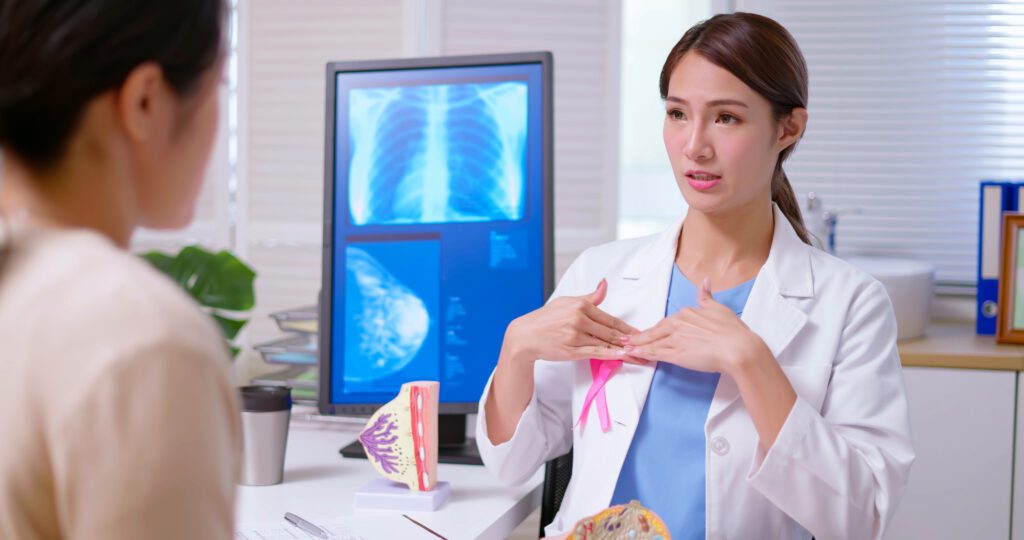by DR. JOY JACKSON
In the United States, breast cancer remains the second-most-common cancer amongst women. Breast cancer rates in Polk County align with this trend; it is the second-most-common cancer among women at rates of 119.6.
There are certain risk factors for breast cancer that one cannot change. Being a woman and aging are two primary factors, with most breast cancers being diagnosed in women who are 50 years old and older. Genetic mutations, such as those in the BRCA1 and BRCA2 genes, can also increase risk. Dense breasts, which have more connective tissue than fatty tissue, can also increase the chance of developing breast cancer. A personal history of breast cancer can increase risk. Lastly, family history of breast cancer, those with first-degree relatives who’ve had breast cancer, heightens risk.
Despite all the risk factors that can’t be changed, there are risk factors for breast cancer that are within one’s control. The choices we have the power to control can impact our breast cancer risk.
Stay Active
A lack of physical activity is linked to a higher risk of breast cancer. Try to do at least 150 minutes of moderate intensity exercise each week in order to lower your chances of breast cancer.
Maintain a Healthy Weight
Some people believe that only severe obesity is linked to breast cancer risk. However, even being slightly overweight can increase the risk, especially after menopause. Ensuring you’re at a healthy weight is key to reducing risk of breast cancer. To manage weight effectively, it is recommended to do regular physical activity and eat a healthy, balanced diet.
Eat a Balanced Diet
Not only is a balanced diet crucial for overall health, it’s also vital in reducing risk for breast cancer. A balanced diet consists of fruits, vegetables, whole grains, lean proteins, and healthy fats. This type of diet provides the essential nutrients that can lower the risk of breast cancer.
Limit Alcohol Intake
Alcohol intake is also a crucial lifestyle factor regarding risk of breast cancer. Even moderate drinking can increase the likelihood of breast cancer. Reduce alcohol intake and, if possible, cut it out completely and choose non-alcoholic alternative.
Quit Smoking
Smoking is also shown to impact risk of developing breast cancer. Quitting smoking is not only crucial for preventing lung cancer but also plays a role in reducing the risk of breast cancer.
Monitor Your Health
If breast cancer runs in your family or you have inherited certain genetic changes in your BRCA1 and BRCA2 genes, talk to your doctor about what you can do. They can provide personalized guidance and recommendations to further reduce your risk of breast cancer.
Stay Proactive
Some people may wrongly believe that making lifestyle changes can cure breast cancer. While a healthy lifestyle can reduce risk, it’s not a substitute for treatment once cancer has developed. In the meantime, individuals can take proactive steps in decreasing their risk for developing breast cancer by making lifestyle changes. With knowledge, you gain the power to make choices over your health.
About the Author: Dr. Joy Jackson, an internal medicine physician, serves the community as director of the Florida Department of Health in Polk County (DOH-Polk). For more information about DOH-Polk, visit mypolkhealth.org. Follow DOH-Polk on Twitter at twitter.com/FLHealthPolk.
